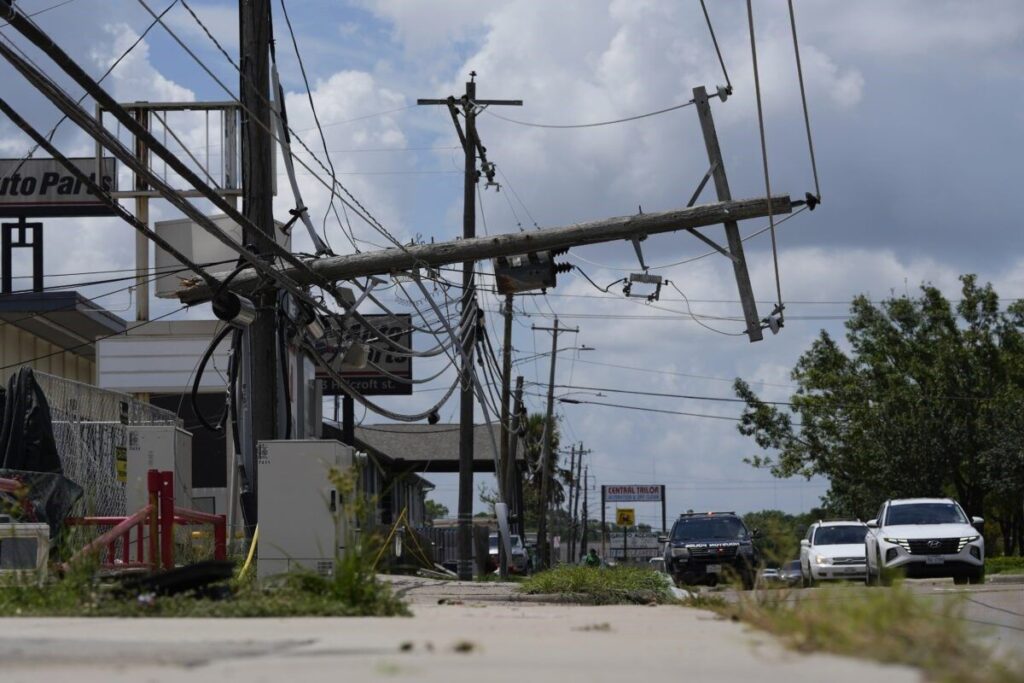WWW.POWER-GRID.COM
The utility is amending its procedures to answer demands made by Gov. Greg Abbott and said it would resubmit a resilience plan to regulators.
CenterPoint Energy has responded to a list of demands made by Texas Gov. Greg Abbott, who has criticized the Houston utility’s response to prolonged power outages caused by Hurricane Beryl last month, and said it plans to withdraw and amend a billion-dollar resilience plan.
Abbott’s office said he met with CenterPoint CEO Jason Wells and Jason Ryan, the utility’s executive vice president of regulatory and government affairs, at the Texas Capitol last week to discuss CenterPoint’s “inadequate” proposal. The group analyzed “every line” of CenterPoint’s plan during the two-and-a-half-hour meeting, which concluded with a list of changes necessary to ensure improvements are completed faster.
Wells, who has refused calls to resign, told the Public Utilities Commission of Texas last week that CenterPoint’s Hurricane Beryl restoration effort could cost customers as much as $1.3 billion, increasing their bills by 2% over the next 15 years. In a letter sent to the governor on July 24, Wells said the utility needs to “amend or refile” its pending resilience plan based on the governor’s concerns.
Two of CenterPoint’s most publicized shortcomings during the Hurricane Beryl response involved the response times of internal and mutual assistance utility crews and poor customer communication, including the unavailability of its customer outage map.
Executives had previously told local leaders they were “fully prepared” for Hurricane Beryl by pre-positioning crews, quickly standing up temporary response staging sites, and dispatching crews as soon as the storm had passed. CenterPoint now plans to use a 25% resource buffer as part of its response model to ensure the utility requests more than the number of crews needed to restore power after a major storm. They said strategic staging and housing sites have also been expanded to minimize travel time. CenterPoint plans to hire a new senior leader for emergency preparedness and response and intends to appoint a resource commander whose “sole responsibility will be to develop and adjust a storm resource plan to efficiently dispatch resources.”
High demand for CenterPoint’s customer outage tracker during Hurricane Beryl caused the system to crash, executives said, leading some residents to rely on a regional fast food app for updates. CenterPoint said it has migrated to a new, cloud-based outage tracker designed to accommodate higher user traffic and will hire a new senior leader to lead the utility’s customer communication strategy. By Aug. 9, all call center agents are being re-trained. The center’s call capacity will be increased by 165% for storm events.
Based on Abbott’s demands, CenterPoint accelerated by four months the deployment of hundreds of automated devices to reduce sustained service interruption and restoration time during extreme storm events. They also committed to replacing all the remaining distribution poles planned for replacement, around 1,000, with composite poles by the end of August.
Hurricane Beryl’s toll on CenterPoint’s power grid in Houston forced utility crews to mitigate 35,000 downed trees, which faced “already poor soil conditions” before the story, CenterPoint said. Abbott directed CenterPoint to complete all of its existing vegetation management issues by the end of August, as opposed to the utility’s previous plan to clear its backlog by the end of the year. CenterPoint says it has doubled its vegetation management workforce to 1,000, who are working to remove 100% of vegetation from 2,000 incremental distribution line miles with higher-risk vegetation by Aug. 31. The utility is also changing its restoration process to accelerate the dispatching of vegetation crews based on damage modeling.










